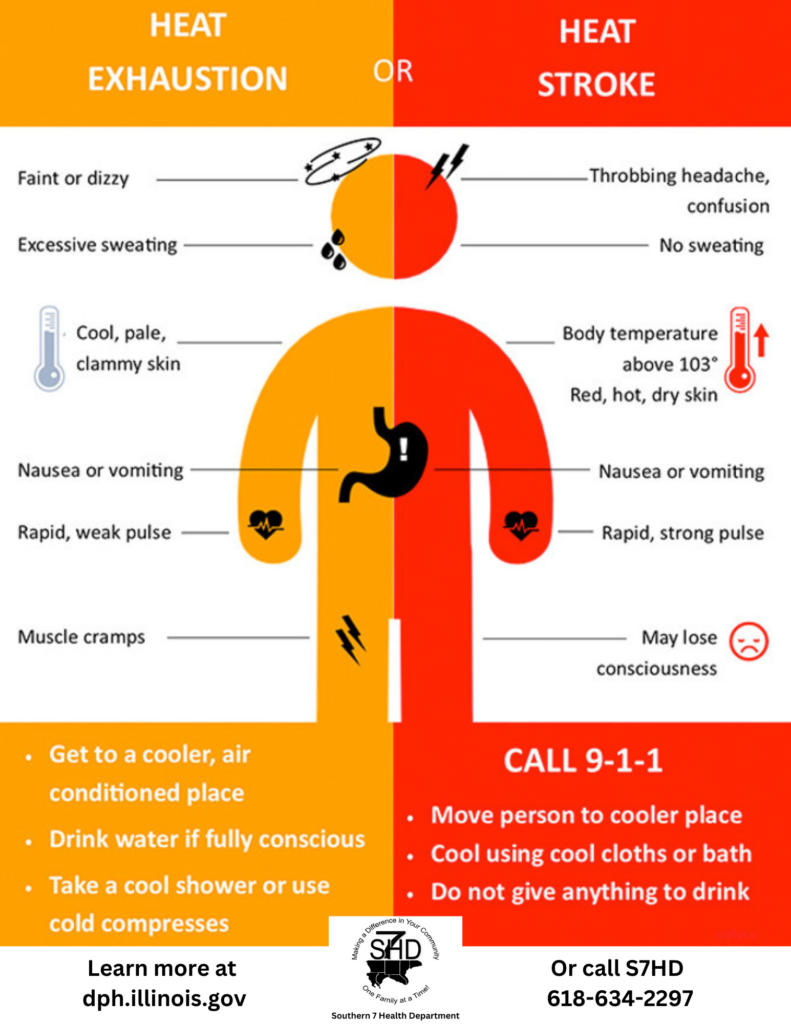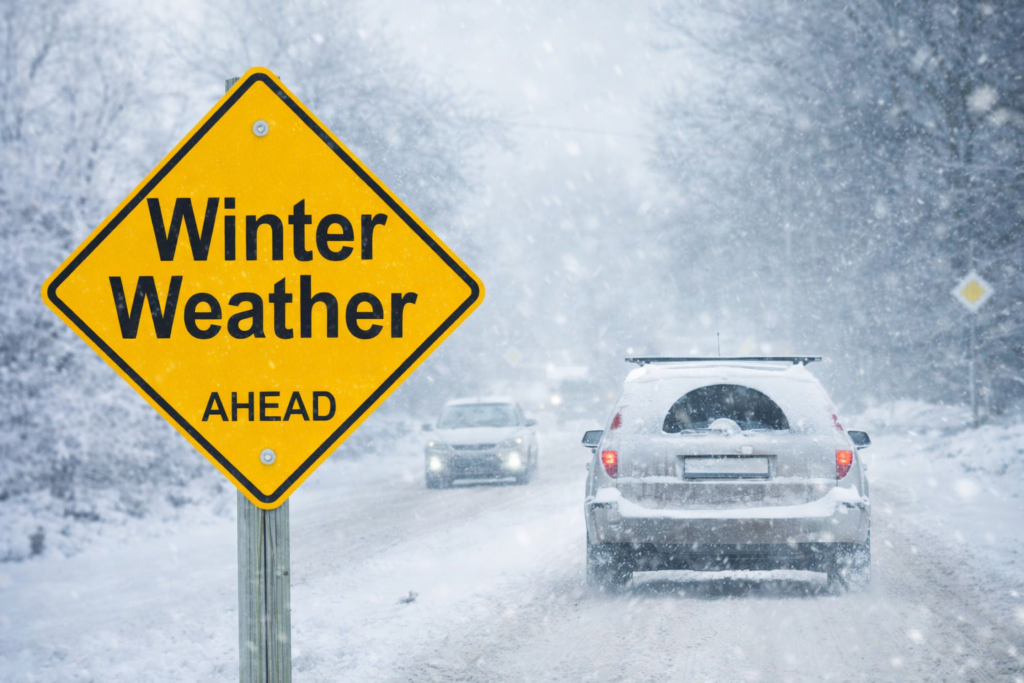How to avoid heat-related illnesses

(KBSI) – As weather temperatures start to climb throughout the region, Southern 7 Health Department encourages everyone to know how to prevent and care for heat-related illness.
Hot weather can cause heat-related illness which ranges in severity from relatively mild heat cramps to life-threatening heat stroke, according to the Illinois Department of Public Health.
The body can normally cool itself by sweating. However, but if temperatures are extremely high, sweating is not enough to maintain the body’s normal temperature.
The most common heat-related conditions are heatstroke, heat exhaustion, heat cramps, sunburn and heat rash.
Heatstroke and heat exhaustion are the most serious conditions, according to IDPH.
Heatstroke occurs when the body’s temperature rises rapidly, the sweating mechanism fails, and the body is unable to cool down.
Heat exhaustion can happen when too much time is spent in a very warm environment, resulting in excessive sweating without adequate fluid and electrolyte (salt and minerals) replacement.
Symptoms of heatstroke include:
- an extremely high body temperature (above 103°F, orally)
- red, hot and dry skin
- rapid pulse
- throbbing headache
- dizziness
- nausea
- confusion
- unconsciousness
Heatstroke can be life-threatening, so call 911 immediately is you have symptoms. Cool the person experiencing heatstroke slowly in a shaded area or air-conditioned environment. Apply cool towels or compresses. Do not give the victim any liquids.
Symptoms of heat exhaustion may include:
- dizziness
- headache
- nausea
- abdominal cramps
- shallow breathing
- cool and clammy skin
- muscle tremors
- heavy sweating
Body temperature will be near normal. Cool the body as you would with heatstroke. Seek medical attention if symptoms worsen or last longer than one hour.
Anyone can develop heat-related illnesses. However, certain groups of people are at increased risk during extremely hot weather. These include people who work outside, elderly people who live alone, people with chronic medical conditions and those taking certain medications.
- Use a buddy system. Never be alone outdoors for long periods of time and have a way to communicate such as
with a cell phone or other device. - Limit outdoor activities. Take breaks as often as you can in a shaded area or air-conditioned environment.
- Drink plenty of fluids. At least 1½ to 2 quarts of fluids daily.
- Protect your body. Wear as little clothing as possible when indoors, and wear light colored, loose fitting clothing
outdoors. When outdoors, avoid direct sunlight, wear a hat, and use a sunscreen with a sun protection factor
(SPF) greater than 15 to protect yourself against sunburn. - Never leave children, the elderly or pets in a parked car, not even for just a few minutes.
- A final reminder — take care of your pets. Provide plenty of cool water and shade.
Visit dph.illinois.gov or call Southern 7 Health Department at 618-634-2297 for more information on how to beat the heat this summer.


